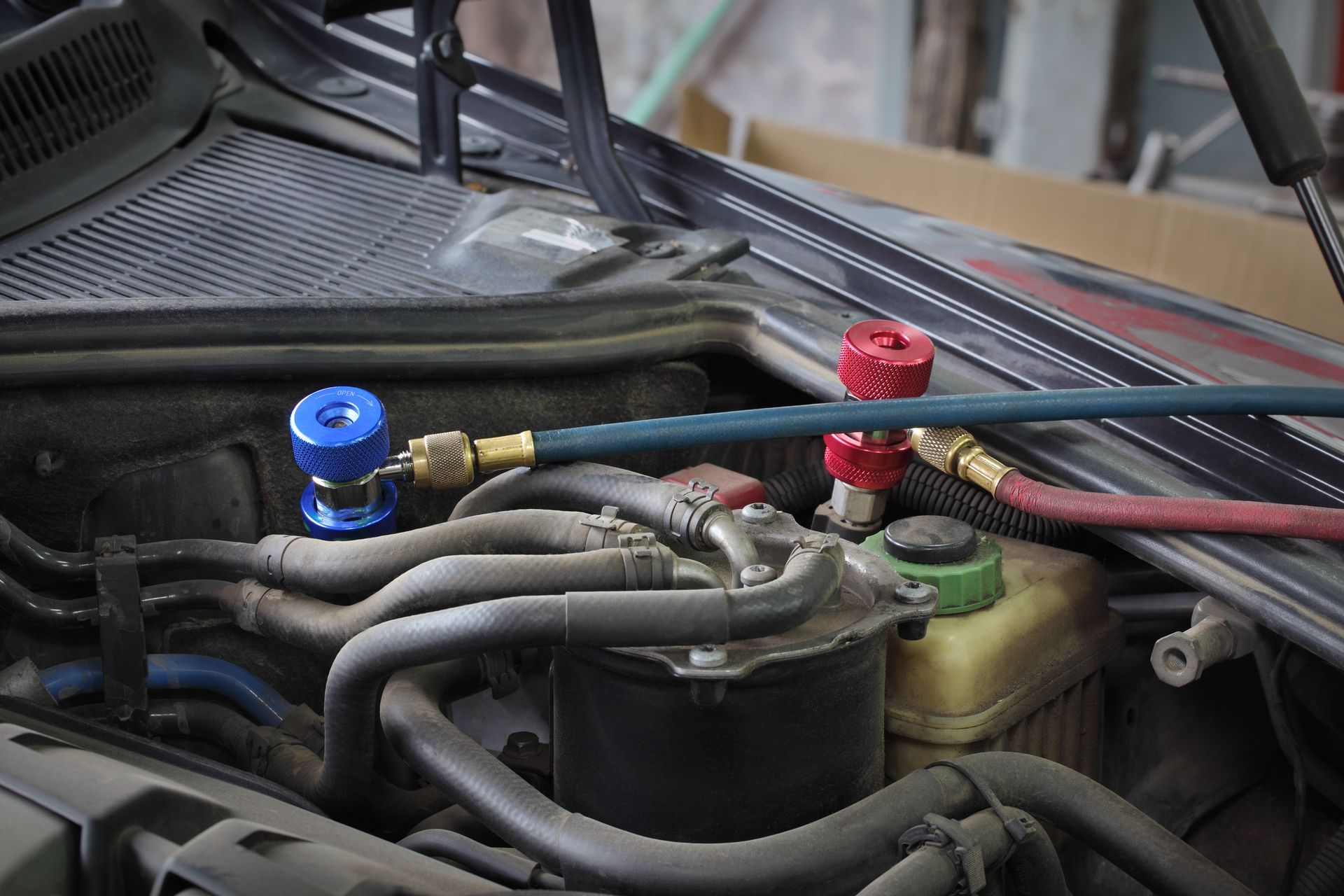Auto AC Recharge
in St. Paul, MN
Defining the future of auto care, unlike any other...

Your vehicle's air conditioning system can make or break your comfort while driving. Sometimes when your AC system stops blowing cold air, it could be that it needs a recharge. But not every time!
That's where Lancer Service comes in. We'll inspect your entire air conditioning system in your vehicle to see if it's having issues.
AC repair can be challenging because the problem could be other components like the condenser, compressor, or a controller issue. We can provide car AC recharge in St. Paul but only if you need it.
Give us a
call or book an appointment online for quality service done right the first time.
Our AC Recharge Service
Your AC system loses refrigerant because of minute leaks. This leads to reduced cooling performance in your vehicle. A recharge restores the optimal level of R134a refrigerant to your vehicle. Here are the steps involved for this service:
- Read duty cycle and pressures of compressor for variable displacement systems.
- Recover and weigh existing refrigerant in the system.
- Vacuum test system for 30 minutes.
- Add ultraviolet dye and any additional refrigerant required.
- Test for leaks with ultraviolet light and assess performance of the AC system.
Signs of a Problem with Your Vehicle HVAC System
- Reduced Cooling Efficiency: The air conditioning system may not cool the air effectively, leading to warm air blowing from the vents.
- Unpleasant Odors: A musty or moldy smell can indicate mold or mildew growth on the evaporator coils, which can be both unpleasant and unhealthy.
- Fogging on Windows: A leaking heater core can cause increased humidity inside the cabin, leading to fogging on the windows and reduced visibility. An unpleasant “sweet” odor can be a sign of this issue.
- Frequent AC Compressor Cycling: The compressor may turn on and off frequently due to low refrigerant levels caused by a leak, indicating a problem with the system.
- Visible Leaks: Refrigerant leaks can be seen as an oily residue or green stain using ultraviolet light.
Why Choose Lancer Service in St. Paul?
ASE-Certified
Technicians
2-Year/24,000 mile
warranty
Dealership-Level
Equipment & Results
Digital Vehicle
Inspections
24-Hour Drop Off
or Pick Up
Competitive
Pricing
Our Location
Address: 270 E 8th St, St. Paul, 55101
Phone: (651) 224-0267
Hours: Monday thru Friday 7 AM - 5 PM




